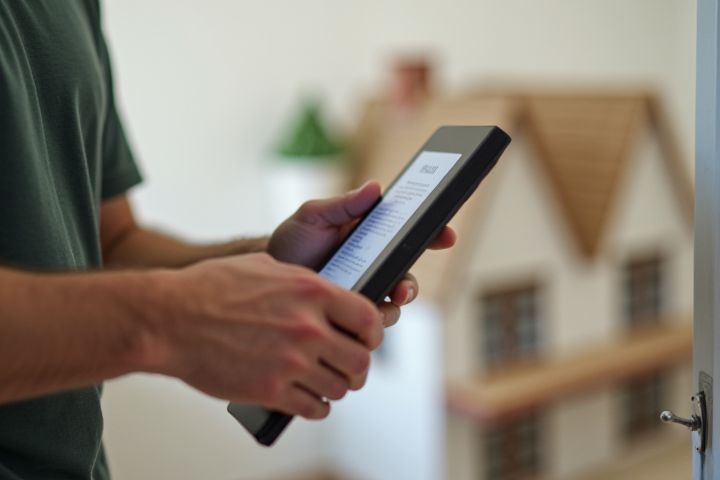
House inspections are crucial for identifying structural issues, potential safety hazards, and necessary repairs before purchasing a property. They provide a detailed assessment of essential systems, including electrical, plumbing, and HVAC, ensuring that everything is in good working order. A thorough inspection can save you from unexpected costs and financial strain associated with significant repairs after closing the deal. Furthermore, understanding the true condition of a home allows you to negotiate better terms or reconsider your purchase. Investing in a professional house inspection ultimately safeguards your long-term investment and peace of mind.
Why House Inspections Are Important
Identify Structural Issues
House inspections are crucial for identifying structural issues that can significantly affect the safety and integrity of your home. A thorough inspection evaluates the foundation, framing, roofing, and other vital components, ensuring there are no hidden defects such as cracks, water damage, or pest infestations. Detecting these issues early can prevent costly repairs and extensive damage in the future. By investing in a house inspection, you protect your investment and enhance your peace of mind regarding the structural soundness of your property.
Uncover Safety Hazards
House inspections are crucial for uncovering safety hazards that could pose significant risks to your family. During a comprehensive inspection, professionals typically evaluate structural elements, electrical systems, and plumbing, identifying issues such as mold, faulty wiring, or outdated installations. Statistics indicate that nearly 15% of homes have undiscovered safety hazards, which can lead to costly repairs or dangerous situations. By investing in a thorough inspection, you can ensure peace of mind and protect your loved ones from potential harm.
Evaluate Roofing Condition
House inspections are crucial for evaluating roofing condition, which is vital for maintaining the overall integrity of your home. A roof in good condition can last around 20 to 30 years, while neglect can lead to leaks and structural damage, costing homeowners an average of $1,000 to $3,000 for repairs. Inspectors assess shingles, flashing, and gutters, looking for signs of wear, deterioration, or water damage that could compromise safety. Regular inspections can help you catch issues early, potentially saving you significant repair costs and ensuring your home remains a safe and secure environment.
Assess Electrical Systems
House inspections are crucial for evaluating electrical systems, as they identify potential hazards such as outdated wiring, overloaded circuits, and faulty outlets. Approximately 51,000 home electrical fires are reported annually in the U.S., leading to significant property damage and safety risks. An inspector will examine key elements, including breaker panels, grounding systems, and circuit integrity, ensuring they meet the National Electrical Code (NEC) standards. Investing in a thorough inspection can save you thousands in future repairs and increase your home's overall safety and value.
Check Plumbing Integrity
House inspections play a crucial role in identifying potential issues before a property purchase. A thorough examination of plumbing integrity can reveal problems like leaks, corrosion, or outdated systems, which could lead to costly repairs. In fact, about 14% of homebuyers discover significant plumbing issues after closing, underscoring the importance of pre-purchase inspections. Investing in a professional plumbing inspection can save you up to $5,000 in unexpected fixes down the line.
Detect Pest Infestations
House inspections are crucial for detecting pest infestations, which can lead to significant structural damage and health risks. Up to 20% of homes in certain areas may be affected by termites, resulting in costly repairs averaging around $3,000. Regular inspections can identify warning signs such as droppings, wood damage, and nesting, allowing for timely intervention. By staying proactive, you can protect your investment and ensure a safe living environment for your family.
Review HVAC Systems
House inspections are crucial for ensuring your new home is safe and functional, particularly when it comes to reviewing HVAC systems. These systems account for approximately 44% of a home's energy usage, and a thorough inspection can identify inefficiencies or necessary repairs that could save you significant costs over time. An HVAC system that is not regularly maintained may lead to air quality issues, increasing the risk of respiratory problems for your family. Investing in a detailed HVAC inspection can enhance your home's comfort and decrease the likelihood of costly breakdowns, with some repairs costing upwards of $1,500 if left unaddressed.
Validate Property Value
House inspections play a crucial role in validating property value, often influencing negotiations during the buying process. A comprehensive inspection can reveal underlying issues such as structural damage, pest infestations, or outdated systems, which can significantly lower a property's appraised value. In contrast, a well-maintained home with no major defects may appraise higher, ensuring you get a fair market price. Statistics show that homes that undergo thorough inspections can retain up to 10% more of their value on the market, making them a vital step in your real estate journey.
Plan Maintenance Costs
House inspections are crucial for identifying potential maintenance issues that can lead to significant costs down the line. On average, homeowners spend about 1% to 4% of a home's value annually on maintenance; a thorough inspection can help you prioritize repairs and avoid more substantial expenditures. For instance, issues such as faulty electrical systems or aging roofs might be flagged, allowing for proactive repairs before problems escalate. By investing in a quality inspection, you can better manage your property's upkeep, potentially saving thousands over time.
Aid in Negotiation Process
House inspections play a crucial role in the negotiation process, providing a comprehensive assessment of the property's condition. Typically, a detailed report will highlight critical issues such as structural damages, wiring defects, or plumbing failures, which can all influence the final sale price. With an average cost of $300 to $500 for an inspection, this investment can potentially save you thousands by identifying necessary repairs before closing the deal. By arming yourself with this information, you gain leverage in negotiations, potentially resulting in reduced prices or requests for repairs that could enhance the property's value.
